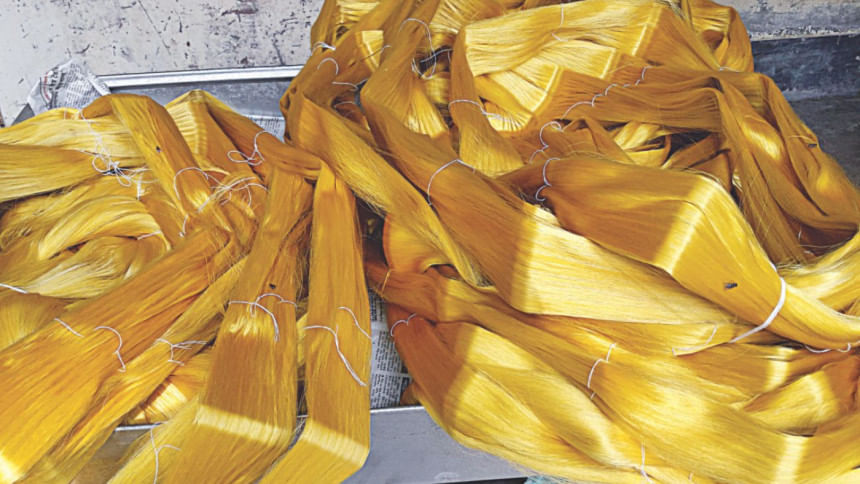Jessore's silk road

Over the past three decades in parts of Jessore region, roadside mulberry trees have become a welcome addition to the landscape. Besides their tasty berries, the trees support an expanding sericulture industry, developed under the auspices of the Silk Development Board. Mulberry leaves are the favoured food of silkworms, the caterpillars that in the process of metamorphosing into moths spin silk cocoons. Currently around 150 farmers are benefiting from silk production.
“I've been involved with sericulture for 28 years,” says Modasser Hossain of Rudrapur village in Jessore sadar upazila. “I planted 1,000 mulberry trees along the roadside to feed the silkworms. Their cocoons sell for around Tk 300 per kilogram, which gives me around Tk 1 lakh through the four harvest seasons per year.”
At around Tk 10,000 annually, his farming costs are minimal. Mulberry trees are easily grown on unused land and the caterpillar eggs are supplied by the Board for free. “Sericulture is lucrative, no doubt,” Modasser says.
Once collected, the eggs take around 30 days to hatch. A further 25 days is required for the caterpillars to complete their growth cycle and begin to spin silk.
Nurul Haque from Jugi Huda village in Jhenidah's Moheshpur upazila has been farming silk for 32 years. “I have 400 mulberry trees along the Moheshpur to Fatepur Road. It costs nothing to maintain them. Silk earns me around Tk 60,000 per annum.”
Sericulture was first introduced to the region in 1985, when the Board purchased 72 bighas of land in Halidhani village at a cost of Tk 50 lakh, to establish the first mulberry plantation as a source for silkworm eggs and quality silk thread. The Board also directly purchases the thread produced by the region's silk farmers.
“The number of farmers pursuing sericulture is increasing day by day,” says the deputy director of the regional silk extension department in Jhenidah, Md Mahbub-ul-Haque. “They can earn a healthy profit for little expenditure, from any unused patch of land. We provide the training.”

 For all latest news, follow The Daily Star's Google News channel.
For all latest news, follow The Daily Star's Google News channel. 








Comments